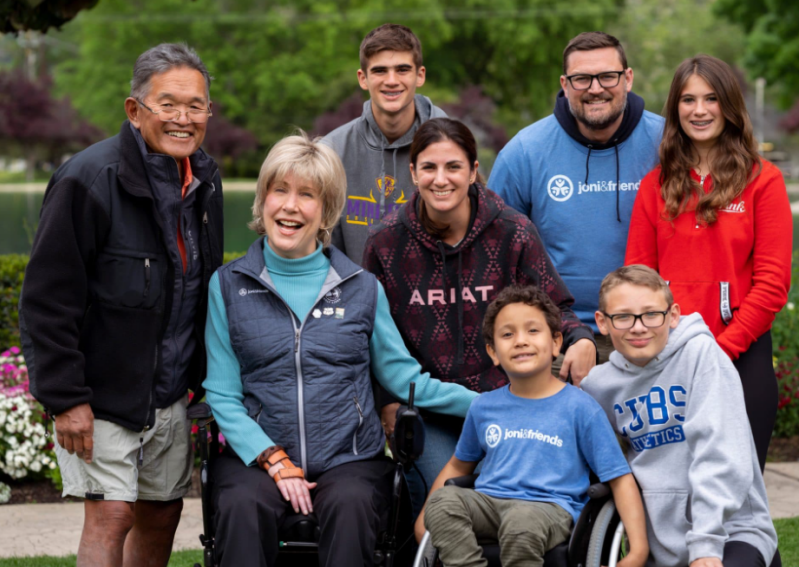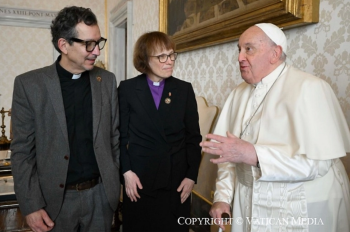
Seventy million adults in the U.S.—one in four—have a disability, according to the latest data from the Centers for Disease Control and Prevention. As churches confront this growing reality, Joni and Friends International Disability Center is urging congregations to actively welcome and disciple those living with disabilities.
In an interview with Christian Daily International, Greg Greer, vice president of U.S. Ministries at Joni and Friends, emphasized that churches are called to “compel” people with disabilities—many of whom live in isolation—into loving fellowship.
“I love to see folks come to Christ and grow in faith, and that’s at the heart of the mission of Joni and Friends,” said Greer. “It’s to make disciples.”
While Greer himself does not have a disability, he noted the importance of recognizing disability as a broad category that can eventually affect nearly everyone. “Everyone is not going to be as able as they used to be,” he said. “But with Joni and Friends, we’re specifically honing into the conventional understanding of disability, which is something medically prescribed.”
Greer clarified this does not exclude those with other challenges, such as intellectual disabilities. “It’s just not what we specifically are targeting,” he said.
Joni and Friends, founded by quadriplegic author and advocate Joni Eareckson Tada, works to equip churches to understand and meet the needs of those with varying disabilities, helping them become “more effective in reaching all people, regardless of their struggle.”
Greer acknowledged a tension in modern Western church culture around healing prayers for disabled individuals. “You’re suggesting there’s something wrong with me by doing that,” he explained. Yet the ministry affirms prayer, while acknowledging that healing does not always occur.
“I believe, and we as an organization believe, in prayer and that God does heal people. Right? But he doesn’t always and in fact, probably most of the time, He doesn’t.”
Referencing John 9, Greer pointed to Jesus’ words about a man born blind: “This happened so that the works of God might be displayed in him.” That passage, Greer said, shows that “disability is purposeful. That God in his sovereignty owns that.”
He also cited Moses’ speech impediment in Exodus 4 to highlight that those with disabilities are still used powerfully by God. “They are made on purpose and have a function, have gifts that can be exercised in a local church.”
Joni and Friends operates 20 offices across the U.S. and works to educate churches on the scale of disability in their communities. According to Greer, one in three families is affected by disabilities—representing over 40 million people.
“We want churches to understand that most of those people, 80 percent of them, have struggling marriages that end in divorce. That most of them do not know the Lord. Most of them do not attend church,” he said.
“We believe that the healthiest churches are those who serve people living with disabilities. They’re the healthiest because they’re reaching the whole body.”
To meet the need, the ministry is expanding local area teams for outreach, prayer, fundraising and church engagement. In cities like Portland, Seattle, and Boise, teams coordinate retreats and local efforts to help churches adapt their culture.
“You’ve got multiple people working to help move culture—the churches’ culture—to the point where they want to receive and disciple people with disabilities,” said Greer.
Still, he admitted gaining churches’ trust can be a challenge. “Some churches may erroneously believe that we want something from them. In reality, we want something for you.”
Greer emphasized that all training and resources from Joni and Friends are free. Their online courses—such as Beyond Suffering, which explores a theology of disability—aim to equip churches in their stated mission to disciple all people.
“If you want to make disciples, to reach the lowest hanging fruit, if you will, in your community, they are those living with disabilities because they don’t have a lot of friends,” said Greer.
Churches that welcome one family affected by disability may see wider evangelistic results, Greer explained, as those families often bring others from schools or local communities.
Greer said his team struggled to measure success using traditional business metrics. “There are things that we can measure, which are our inputs,” he said. “The outputs, you know, that’s with the Lord. We are to plant and we are to sow, but God makes it grow.”
Still, he noted that volunteer participation had increased 12 percent at Joni and Friends retreats and getaways, with many returning to serve in local churches. One example, Hope Community Church in Olympia, Washington, has been “completely transformed” through its disability ministry over the last three years.
The organization’s threefold strategy—“reach, care and connect”—guides its work.
“We want to reach families where they live … We want to care for them through something like a family retreat … and then the end game is to connect them with a local church and the hope of the gospel,” said Greer.
He acknowledged that some churches are only beginning to confront the practical challenges of disability inclusion. When asked whether a Sunday church service could accommodate a busload of 20 people in wheelchairs, Greer said, “That would be a real challenge for some churches.”
Among the roughly 2,000 churches Joni and Friends works with, only 7 to 10 percent could likely accommodate such a group, though another 10 percent “is not far behind.”
Greer also addressed the difficulty of supporting families dealing with invisible disabilities, such as autism. A child shouting during service may require flexibility and understanding.
“How people respond to the person with the obvious disability” may influence how others, silently struggling, perceive the church’s love and acceptance, he said. “Maybe they’ll accept me. Maybe they’ll love me.”
One solution Greer recommends is a “buddy ministry,” where trained volunteers accompany individuals with disabilities during worship. These buddies can provide gentle support—for example, helping an overstimulated child with autism take a calming walk.
In other parts of the world where Joni and Friends works, Greer said cultural misunderstandings about disability persist. In some areas, people with disabilities are seen as cursed.
“They’re misunderstanding what Jesus said in John 9 … We would say no. It’s God’s purpose. It’s difficult to understand why. But we believe that at the end of the day, God has purpose in it.”
Greer closed by referencing Luke 14, where Jesus calls the Church to invite “the poor, the crippled, the lame, the blind” to the banquet. “They never get invited to anything,” he said. “So it’s just this beautiful picture of the church. God says, ‘Church, go! Go and compel them. Bring them in because they are a part of my house.’”
“We want to see churches, church leaders and Christians understand that this is a wonderful part of the Great Commission,” Greer said, “and the Luke 14 mandate that we do need to befriend, love, disciple and evangelize people with disabilities.”





